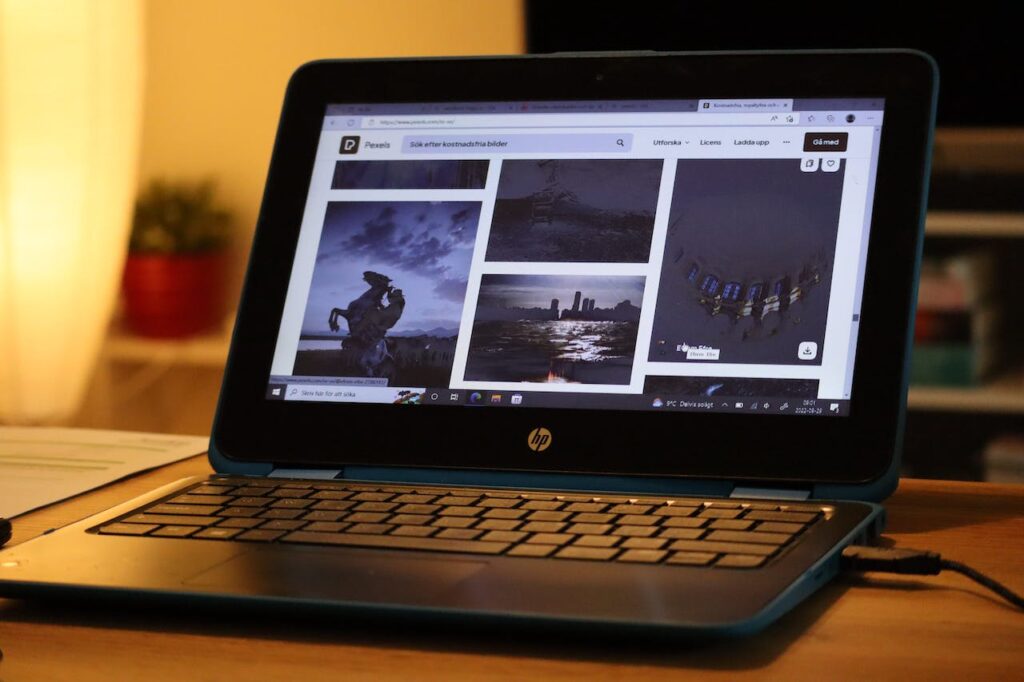Why You Shouldn’t Buy Cheap Laptops For Christmas – From an IT Engineer
Cheap isn’t always the best

If you are a returning reader, you may have heard me say this before, but as it’s the Christmas period, I thought it would be a good idea to talk about it again and for me to give you a bit of an updated opinion.
Cheap laptops may sound like a good deal, but trust me, they are NOT worth it, let me explain…
For starters, when I say cheap laptops I’m talking about laptops in the £100 up to around £350 price range. These laptops will often have 4GB of RAM and 64GB of storage space which in this day and age is just appalling.
Once you install your basic programs and apps, there will be barely any room for Windows updates let alone any file storage. Trust me, that 64GB will fill up fast. As everything is built into the motherboard, you won’t be able to upgrade that storage either.
To make things confusing, these laptops will often be advertised as having expandable storage via a MicroSD card, however, that doesn’t work in the same way as a hard drive in the sense that it is detected as a MicroSD card and for some reason many programs don’t like to have applications installed on there. It’s more of a file storage location.
In general, the performance of these machines will also be poor, so even if they are advertised for light gaming, they won’t play that nice. This is dependent on the full specs, but I’m talking about it in general.
Let me tell you a story…
In my time working in IT, I worked with many of these budget laptops, I worked with them in a corporate environment and I worked with them supporting students who purchased them for their courses.
The story is always the same, the laptop has become ultra slow because once they install Microsoft Office and a few other small apps that they need for their course or to do their job, there is not enough storage space for Windows Updates and storing and saving files.
But what prompted me to write this article was relatives who recently purchased one of these laptops from Acer.
I can’t remember the model number off the top of my head, but it was running slow. Don’t get me wrong, it was a nice little laptop and they purchased it because of the size, look as well and the attractive 12 hours of battery life.
However, they intended the laptop to be for light business use, which in all fairness the laptop should have coped with considering that they did everything in the browser.
But even after resetting the laptop to factory settings, the laptop was performing poorly. My theory for the poor performance was that Windows 11 was just too powerful for that laptop.
As the laptop was practically brand new, they decided to return it.
As the main use of the laptop was managing and updating Google Sheets spreadsheets, I convinced them to buy a Chromebook instead.
The funny thing is that for slightly less, they ended up buying an Acer Chromebook with a better processor, more RAM and 128GB worth of storage space. Now, it’s worth knowing that they purchased during a Black Friday sale, so it was potentially cheaper than it would have normally been.
But here’s the thing, they absolutely love that laptop and they got to stay with a brand that they know and trust.
Chromebooks are perfectly capable!
I don’t know what it is about Chromebooks, but they certainly are underrated and I’m saying that as somebody who owns a Chromebook!
They are often found in the same sort of price range as these ultra-cheap Windows laptops and they don’t run Windows. The operating system is literally a web browser, which in some cases (depending on the model) can even run Android apps.
If you plan to buy a laptop for coursework or office use such as checking your emails, writing a letter or managing spreadsheets, they are perfectly capable, and best of all if you use Google Sheets, it’s free!
You don’t have to worry about any Office 365 subscriptions!
With coursework, it can be hit and miss, as they are perfect for writing assignments and research, but they may not be adequate for practical assignment work.
But, often there are ways around compatibility issues. As a computer science graduate, I’ve known many people to complete their entire degrees using Chromebooks. Even I had a Chromebook at University!
Before making a purchasing decision it’s worth understanding the needs and requirements of the user.
Secondhand laptops aren’t a bad option
Chromebooks are a great choice for basic use, but if you need to use specialist software that isn’t available on ChromeOS, secondhand laptops are worth a look.
I tend to recommend people to look for ex-business refurbished laptops, as they are likely to be tested by professionals before being sold. They will often come in a refurbished state running the latest version of Windows and all the important drivers installed.
It’s no shame in buying second-hand laptops, I’ve had two during my 4-year degree, an old Toshiba Satellite Pro and a mid-2012 MacBook Pro, both of which worked incredibly well for my degree.
But as with any second-hand tech, you need to be aware of a few things, the main one being that the battery may not be as good compared to a brand-new laptop, but it doesn’t make it a bad laptop. Batteries can often be replaced.
And that’s the other thing with slightly older laptops, in most cases, they will be upgradable. That means that you can upgrade the hard drive and the RAM. But it’s worth double-checking this before buying.
Conclusion
At the end of the day, the decision is yours to make. We live in difficult times, especially from the financial side.
I don’t want people to buy a laptop just because it was a good deal only to have to spend more money taking it to computer repair shops to be examined or repaired.
I guess, the same can be said for second-hand laptops, but based on my own experience second-hand tech can be a bit of a lottery, so it’s worth buying from sellers that give you a warranty.
It’s also worth bearing in mind that for some people, laptops being slow isn’t really a problem so these cheap laptops may be okay for them. But my experience with them as an IT engineer, tells me otherwise.
Have you ever had an ultra-cheap laptop? What was your experience like with it? Let us know in the comments!
